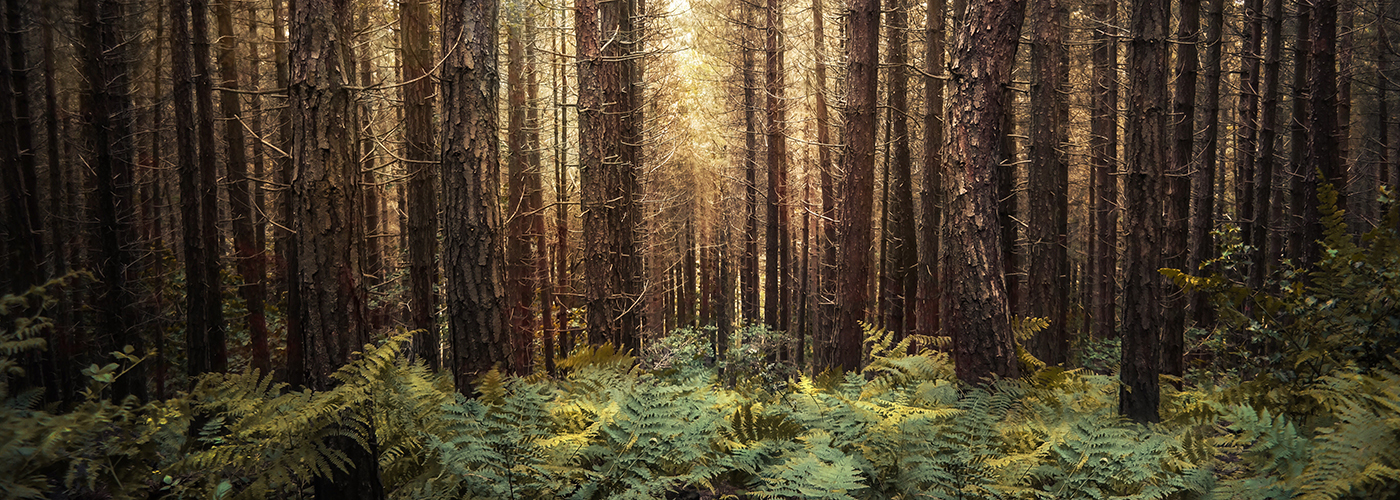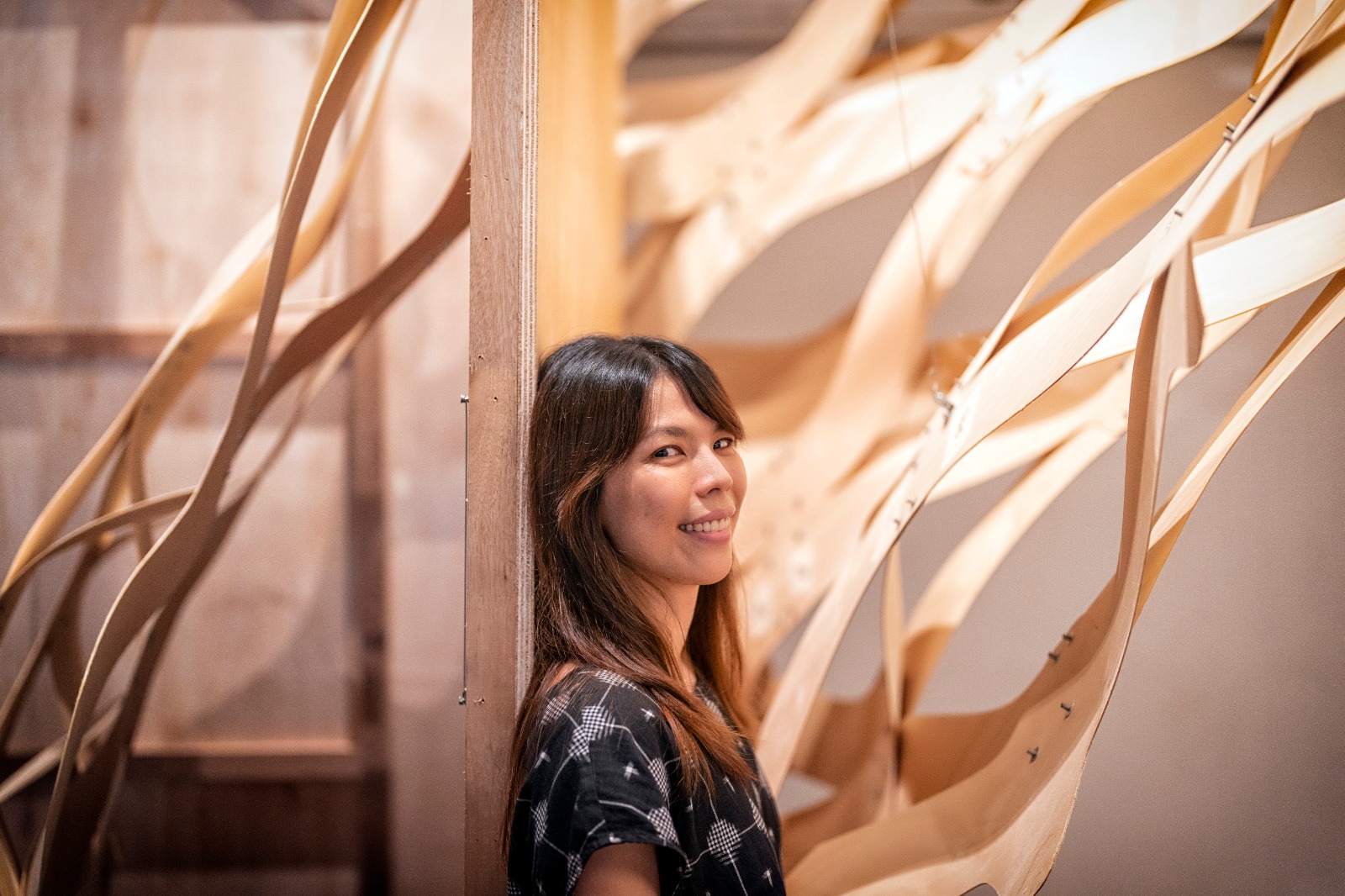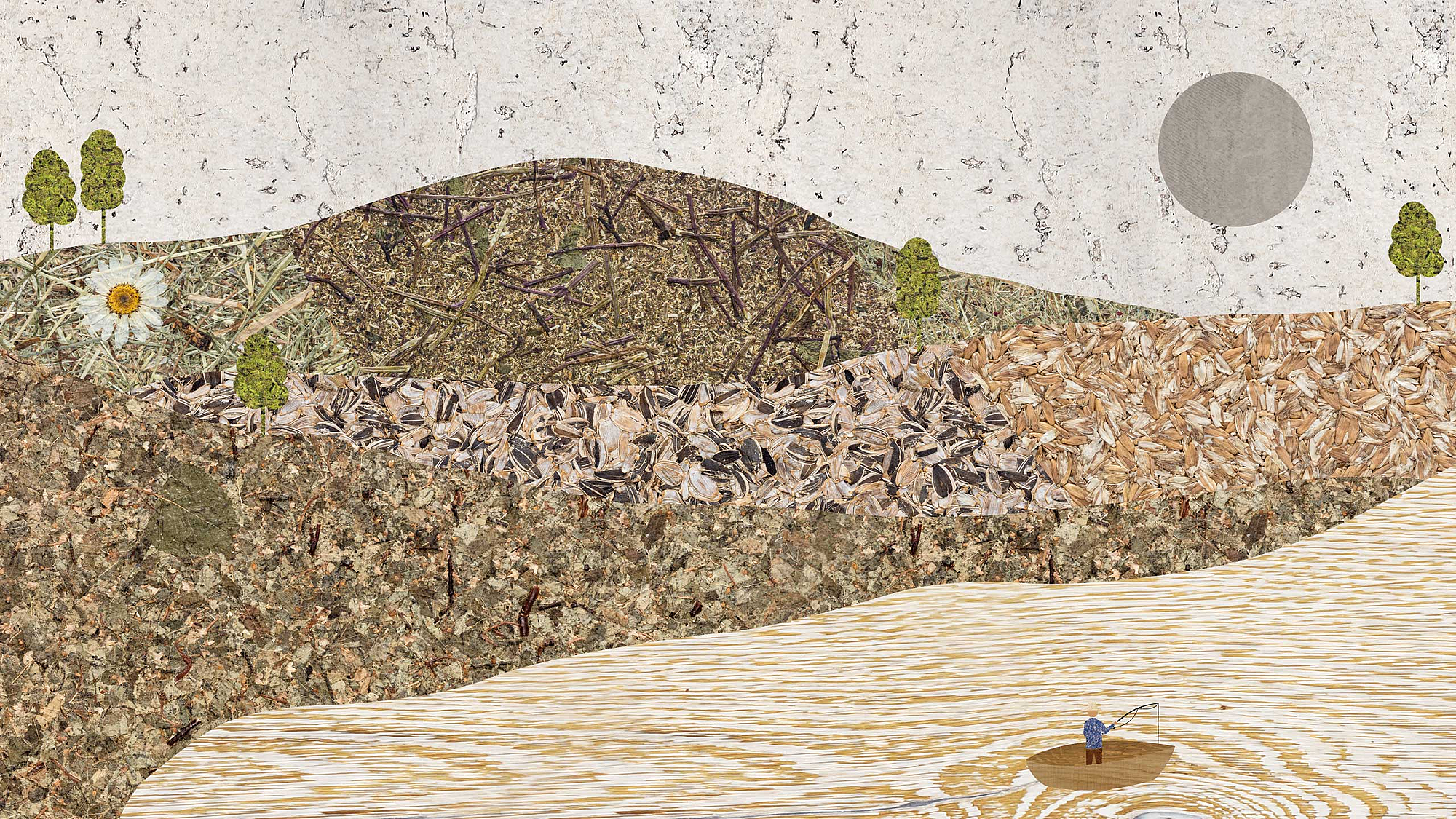
#Sustainability Spotlight with Emily of Panelogue & Superstructure
Reconceptualising the Value of Sustainability

Emily Sim, Director of Panelogue & Superstructure (Photo Credit: Panelogue)
Looking through macro lens, Emily views sustainability as the ability to prolong something over time. She considers sustainability as something similar to Postmodernism and Modernism -- it is a rising hallmark of design and manufacturing in our generation, driven by the circumstances and needs of our time. How might furniture players rise to this challenge of incorporating sustainability into our products and services?
As a designer who interacts with a plethora of materials on a regular basis, Emily believes that sustainability is about using materials meaningfully, innovatively and locally. This use of materials should also come with a conscious intention to prolong the product life-cycle, whilst simultaneously preparing for responsible post-consumption waste management. With these in mind, Panelogue and Superstructure focus on renewable wood and forest products like cork and use natural oils to dye our products. Though these natural materials do age over time, Emily believes that sustainability for natural materials is not about having them look exactly the same twenty years later, but about embracing their natural aging process and the character they have.
As a business owner in this modern era, Emily feels compelled to leverage digitalisation to increase her capacity to pick up more exciting, precise and sustainable techniques for woodworking and carpentry. Besides utilising modern technology, Emily also calls for fellow business owners to join her in cultivating a different consumer culture -- a culture where we rethink what we perceive prosperity to be, and focus on owning less but better material goods.
As the leader of her team, Emily carries out her responsibility of garnering the buy-in of her employees and other stakeholders for various sustainability initiatives. With more people on board, everyone can build on their unique capabilities and interests to advance sustainability in various things that they are passionate about. No one can be perfectly sustainable in all aspects, but when different people come together and complement one another, the possibilities are boundless.

Some of Panelogue/Superstructure's projects -- UOVO Sensory Pod (left), Plain Vanilla on Neil Road (top right) & Duo Residence (bottom right) -- which are the fruits of combining digital design tools and other technology with more sustainable materials (Photo Credit: Panelogue/Superstructure)
After securing access to the talent and tools for sustainability, one of the next questions for business owners cannot exclude how to price more sustainable products against the market rates of their counterparts. On this topic, Emily shares that current furniture products have been priced too low, as they were built on the exploitation of our labour and natural resources. Our workers and environment should be more respected and valued through higher wages and funds for better environmental management, which should be reflected to consumers in the form of fairer prices. While it is easy to follow the normative linear consumption culture in society today, where throwing something away is so easy and almost mindless, we need to explore an alternative culture. A culture where we treasure the products we consume more and do not simply see them as readily available and 'disposable'.
The rate that we are currently consuming at is unsustainable. Emily calls for us to ask ourselves: how might we have sustainability and urbanisation progress in parallel in the society we live in, such that we can prosper in harmony with our environment? One way is by promoting more conscious and responsible consumption -- consuming less but better-quality material products that are more responsibly sourced. A first step we can take is to change people's understanding of luxury and desire for luxury towards one that prioritises and values innovation, personality and makers' talent, rather than traditional notions of 'expensive materials'. The former are far harder to come by.
The journey to change mindsets and cultures is a long-drawn one, and the process will definitely not be easy. However, remembering that there's still so much more to be done for sustainability has kept Emily going throughout the years. She appreciates how she is part of a network of like-minded business owners within SFIC, where bosses support one another for their sustainability initiatives. To fuel ourselves for the journey ahead, Emily shares that it is crucial to find meaning in our sustainability journey and regularly remind ourselves of why there's value in what we do.
With her eyes on the future, Emily looks forward to seeing the younger generation leverage digitalisation and other evolving technologies -- to explore various possibilities and push the boundaries of sustainability in woodworking.
For fellow SFIC members who are planning to start making progress on sustainability journey, Emily would like to say, "Start small, so you don't get too overwhelmed from the beginning. Every small step helps!"
Read more about Panelogue & Superstructure in this interview by Creativ-Space!
-----------------------------------------------------------------------------------------------------------------------------------------------------

Art-piece made from various sustainable materials used by Panelogue/Superstructure (Photo Credit: Panelogue)
Introduction to Panelogue:
Panelogue is reshaping the way spaces are built. Specialising in unique, handcrafted surfaces and high-performance wood-based panels gathered from sustainable sources and manufactured through innovative methods, the company endeavours to shift production and consumption patterns. So that builders, designers and architects can create spaces where ecology and urbanisation can progress in parallel.
Introduction to Superstructure:
Superstructure is a design and build lab focused on developing smart solutions and systems for complex geometrical and computational problems. Established in 2017, Superstructure bridges formal ideas with manufacturing and assembly; offering acute knowledge in computational design, materials systems as well as precision digital fabrication techniques. The build lab continuously dedicates itself in developing new parametric outcomes, implementing complex techniques in architecture and beyond.
Cluster: Design
Sustainability Themes:
-
Environmentally responsible sourcing, circular economy, recycling, waste reduction, health & safety
Environmental Initiatives:
-
Each of Panelogue/Superstructure's products has different sustainability features.
-
For instance, Foresso is a sheet material composed of end-grain wood chips made from offcuts, wood dust, plaster waste, and 0% VOC bio-based resin. A durable and versatile material that can be adapted to suit each project, it is ideal for interior surfaces such as wall panels, tabletops, countertops, and flooring.
-
Some of Panelogue/Superstructure's products use cork, a more sustainable material harvested from the bark of cork oak with the tree left intact.
-
-
Panelogue has signed the Alliance for Action on Sustainable Spaces Low Formaldehyde Commitment Statement.
-----------------------------------------------------------------------------------------------------------------------------------------------------